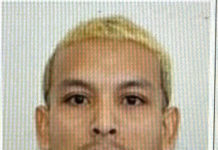
THE NEW YORK TIMES
JUNE 15, 2012, 8:31 AM
A Pantomime of Justice
By FRANCISCO TORO <http://latitude.blogs.nytimes.com/author/francisco-toro/>
MONTREAL – The right to be present at your own trial is a core civil right. Certainly,article 125 of Venezuela’s criminal procedure code <http://www.scribd.com/doc/2062116/CODIGO-ORGANICO-PROCESAL-PENAL> bans in-absentia trials. Which is why, when facedwith an attempt to sentence one of his clients who was not in the courtroom, the Venezuelan defense attorney José Amalio Graterol objected forcefully and refused to participate in an obviously illegal procedure.
For his troubles, Graterol was
immediately jailed <http://www.eluniversal.com/nacional-y-politica/120606/hrw-terms-retaliation-arrest-of-venezuelan-lawyer-jose-graterol> for obstruction of justice. After eight days in one of Venezuela’s notoriously violent prisons, he was released on bail, but he still faces the possibility of a lengthy prison term on the original charge.
Within hours of his arrest the Geneva-based
International Commission of Jurists <http://www.icj.org/default.asp?nodeID=349&sessID=&langage=1&myPage=Legal_Documentation&id=24008> was expressing concern for the abuse, calling it “the most recent of a series of violations to the fundamental principles of the rule of law in Venezuela in recent years,” while the chairman of the International Bar Association’s Human Rights Institute, Sternford Moyo,
declared <http://www.ibanet.org/Article/Detail.aspx?ArticleUid=7ebb856b-9bb3-4d10-b971-6d0b697a8602> that “Graterol’s apprehension is a clear breach of Venezuela’s own criminal laws, a clear violation of the fundamental principle of the independence of the legal profession and also represents as a serious infringement of firmly established international principles.”
In Venezuela, everybody knows this is payback. Graterol is being hounded because he has had the courage to represent Judge María Lourdes Afiuni in a case that has become a public relations catastrophe for the Chávez government.
In December 2009, when she still on the bench, Afiuni ordered the release of one of President Hugo Chávez’s most high-profile political prisoners. Furious, the president accused Afiuni <http://www.youtube.com/watch?v=AOWPXh3yxBM&feature=related> of taking bribes and, in a speech on national television, said she should remain in jail for at least 30 years, and possibly should be executed. Soon, the judge found herself locked up in a jail populated by some of the people she’d sentenced herself.
Afiuni had merely applied the letter of the law to the case: the prisoner, Emigdio Cedeño, had been jailed awaiting trial for more than two years, and prosecutors were still not ready to charge him. Given the strict deadlines established in Venezuela’s criminal procedure code, she had had no choice but to release him.
Chávez used the occasion to make sure everybody in the country – and, in particular, every judge on the bench – understood that the real law in Venezuela was the one he set down personally, not the one written down in the books. Irony of ironies: Afiuni has been detained for over two years without a trial date. This time, though, her fellow judges know better than to release her.
Under those circumstances, you can see how agreeing to represent Afiuni was a bit of a fool’s errand. Yet that’s exactly what Graterol did. Over the last three years, as Afiuni languished first in jail and later under house arrest, he helped raise international awareness of her case. Soon, the European Parliament
condemned <http://www.europarl.europa.eu/sides/getDoc.do?pubRef=-//EP//TEXT+TA+P7-TA-2010-0289+0+DOC+XML+V0//EN> her treatment. The Inter-American Commission on Human also expressed concern <http://www.cidh.oas.org/Comunicados/English/2010/36-10eng.htm> , and groups ranging from
Amnesty International <http://www.amnesty.org/en/news-and-updates/venezuela-urged-release-judge-held-without-trial-year-2011-01-26> and
Human Rights Watch <http://www.hrw.org/news/2010/04/08/venezuela-stop-attacks-judicial-independence> to the Law Society of England and Wales issued statements decrying her treatment.
The jailing of Afiuni even led to a rift between Chávez and Noam Chomsky, long a key source of international left-wing street-cred for the regime, who ended up
writing an open letter <http://www.guardian.co.uk/world/2011/dec/21/chomsky-chavez-free-judge-letter> to Chávez pleading with him to release Afiuni (to no avail).
In time, the Afiuni case made it all the way to the United Nations, where experts called for her immediate release <http://www.un.org/apps/news/story.asp?NewsID=33273&Cr=judges&Cr1%20-> . In fact, in one of those grim twists of fate, Graterol was jailed at the same time as Afiuni was receiving a visit from Gabriela Knaul, the U.N.’s special rapporteur on the Independence of Judges and Lawyers.
The jailing of Afiuni badly undermined the Chávez government’s claim to democratic legitimacy. Rather than righting the wrong, the government is doubling down, cracking down on her legal team for the bad publicity that ensued. There’s a grim parallelism between the two cases: much like Afiuni was jailed for doing something the law mandated of her, Graterol is being tried for demanding, for his client, rights the law itself establishes.
The retaliation against Graterol has sent more shockwaves through Venezuela’s bruised-and-battered legal community, underlining just how far due process guarantees enshrined in Venezuela’s Constitution have been eroded.
The same brutal message of intimidation that the jailing of Afiuni sent to judges throughout the country, the jailing of her attorney is sending to lawyers up and down the land. The outcome is a pantomime of justice – a grotesquely disfigured copy of due process that’s little more than a fig leaf for arbitrary presidential power.










